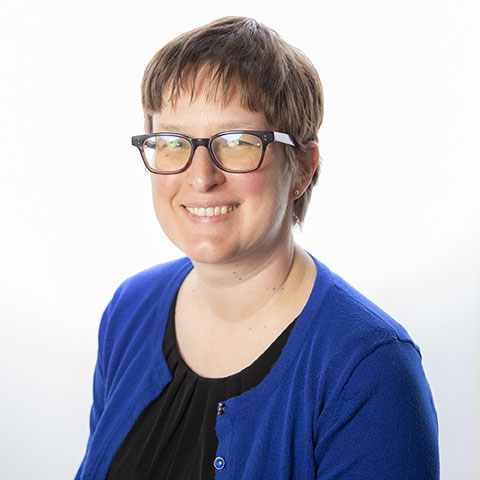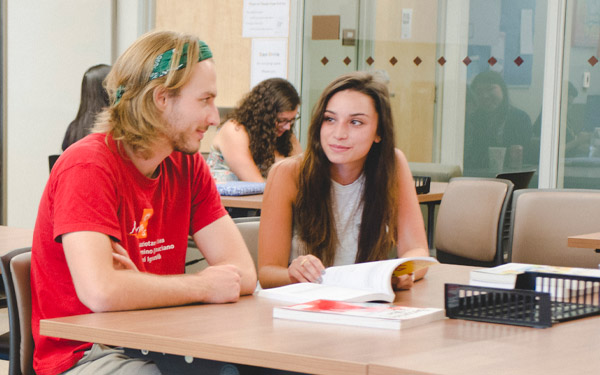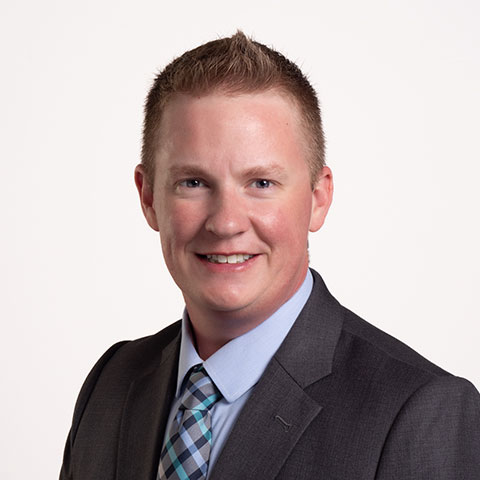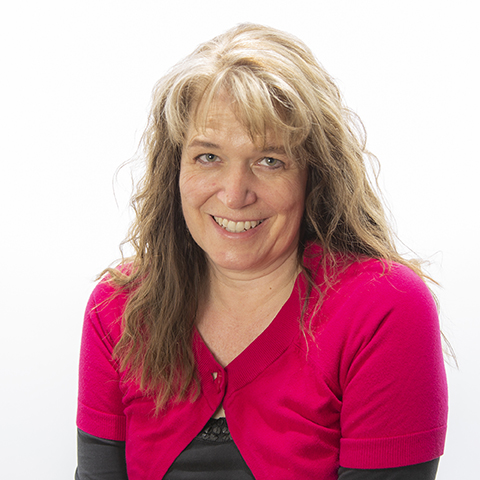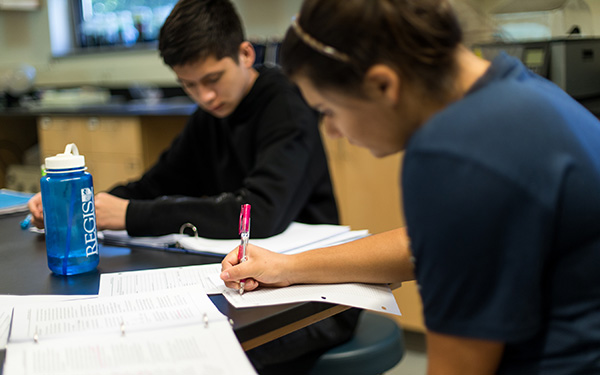
Astronomy, Mathematics and Physics Department
The Astronomy, Mathematics and Physics Department educates the next generation of scientific and technology leaders within a moral, ethical and intellectually stimulating environment. We provide a nurturing space where students from diverse backgrounds can explore astronomy, mathematics and physics at many different levels—whether you're pursuing a major in one of these disciplines, taking courses to fulfill core requirements, or combining studies across multiple fields.
We challenge and support you as you develop quantitative, problem-solving and critical thinking skills that will help you navigate our complex world. Training in mathematics provides a unique perspective that fosters pattern recognition, precision and interconnectedness. Astronomy and physics address fundamental questions about the informational and physical nature of the universe—from conservation principles and the structure of matter, space, energy and time, to whether the universe itself might be a computer.
Our graduates are prepared not just for technological challenges but also for the exciting science that will drive the next generation of solutions. Students often combine majors or minors across chemistry, computer science, education, biology, business, and other disciplines. This interdisciplinary approach, woven together with the University's mission to develop the whole person, uniquely positions our students to leave a positive impact on the world.

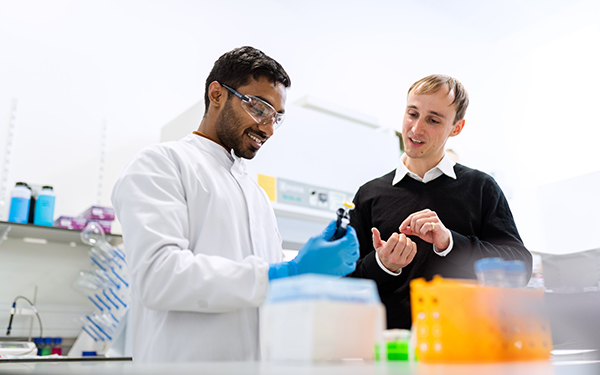
Minors
- Mathematics
- Physics
Tutoring
Tutoring is available to students in any major at no charge through The Learning Commons. Tutors are available on an appointment basis, both in-person and online via Zoom and can provide one-on-one and group sessions.
Math Placement
At Regis University, we strive to create the best opportunity for our students’ academic success. That’s why the Math Department provides students enrolling in some math courses with an evaluation designed to assess their current level of math proficiency and place them in a math course that will challenge, but not overwhelm them.
Any student who is taking MT 260 Pre-Calculus or MT 360A Calculus I must take the ALEKS PPL Math Placement Test, unless they are exempt based on their SAT or ACT math subscore, or have earned college credit for certain math courses. Students who are taking other math courses, such as MT 270 Introduction to Statistics, do not need to take the placement test. Students who wish to start in MT 360B Calculus II or a higher level math course must have college credit (including through the AP exam) for the pre-requisite course, or talk to a math professor to get permission to take the course without credit for its pre-requisite.

Exemption Criteria
| Course | SAT Math Score | ACT Math Score | College Credit |
| MT 260: Pre-Calculus | 540 or higher | 22 or higher | C- or higher in MT 250: Quantitative Skills and Reasoning OR MT 201 College Algebra |
| MT 360A: Calculus I | 610 or higher | 26 or higher | C- or higher in MT 260: Pre-Calculus OR transfer credit for BOTH MT 201: College Algebra AND MT 231: Plane Trigonometry |
Beyond the Classroom
In our changing and increasingly technological society, mathematics and physics touch nearly every aspect of our everyday lives. This is why we cultivate opportunities for our AMP students to pursue their passions outside the classroom, so that they may learn to analyze and interpret numerical data in a variety of real-world contexts.
AMP Club
Our AMP Club is a community of mathematics and physics enthusiasts dedicated to exploring the beauty and intricacies of mathematics and physics! The club is open to all students, regardless of their major, who share a passion for mathematics and/or physics and a desire to engage with like-minded individuals.
Research
Students are encouraged to engage in faculty-guided research. Research in Astronomy, Mathematics or Physics can be completed for Independent Study credit with Regis faculty or through one of the many summer Research Experience for Undergraduates (REU) programs, which provide paid opportunities to spend a summer researching mathematics or physics with peers and faculty from around the country.
Conferences
There are several local and regional conferences that our students have the opportunity to attend, both in mathematics and in physics. Students can present their own research, see other research being done by undergraduates and faculty in the region and by faculty from around the world. These conferences provide valuable opportunities for students to network and learn from professionals in mathematics and physics.
William Lowell Putnam Mathematical Competition
This extremely challenging exam offers students the chance to test their mathematical mettle against other undergraduates nationwide. There are prizes for the top scores nationally, and good scores can attract the interest of graduate schools, but many students enjoy tackling the exam just for the experience they gain. Learn more about the Putnam Competition on their website.
Interdisciplinary Contest in Modeling
The COMAP Mathematical Contest in Modeling is an opportunity to work in a group of three students on a huge real-world application over a long weekend. It’s sometimes described as "four days to work on a problem that would take professional mathematicians four months to solve." Past problems have included everything from designing airport security systems to planning motorcycle stunts for an action film.

